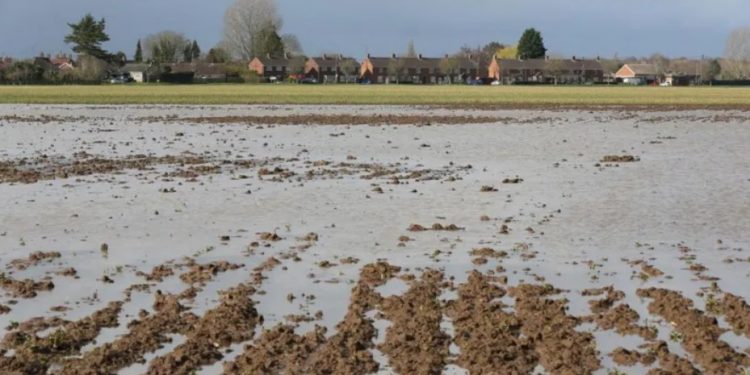Recent wet weather has dealt a severe blow to food production in the United Kingdom, leading to significant challenges across the agricultural sector. A key supplier of brassicas in the UK reported disruptions to its spring planting schedule, resulting in fields of decaying cabbages, broccoli, and cauliflowers due to crops failing to mature in alignment with market demands. Additionally, a pick-your-own strawberry farmer from Lincolnshire lamented experiencing his “worst season in 42 years” due to the adverse conditions.
Jack Ward, the chief executive of the British Growers’ Association, highlighted the widespread impact of the inclement weather, emphasizing the struggles faced by farmers to germinate crops amidst the challenging conditions. He noted the delicate balance required for successful food cultivation, emphasizing the critical role of weather conditions in the agricultural process. The excessive rainfall in the previous autumn and winter, coupled with the lack of sunshine, further exacerbated the situation, affecting crop maturity and yield.
John Moulding, commercial director at TH Clements based in Lincolnshire, underscored the repercussions of delayed planting, leading to an oversupply of brassicas as crops matured at varying times, contributing to fields of wasted produce. The situation has taken a toll on the morale of long-time employees, with Moulding describing it as “demoralising,” marking it as one of the most challenging periods in the company’s history.
As farmers grapple with the financial implications of the disrupted season, the potential for increased consumer prices looms on the horizon. The impact of the adverse weather conditions extends beyond Lincolnshire, with Syston Park farm in Grantham facing significant challenges in fruit cultivation due to late frosts and unfavorable weather patterns. Owner Paul Clegg highlighted the unprecedented difficulties faced during this season, emphasizing the adverse effects of the late frost and cool, rainy weather on fruit production.
The erratic weather patterns in the UK have posed significant challenges for farmers nationwide, with extreme conditions unfolding in recent months. The record-breaking rainfall over the past 18 months, combined with temperature fluctuations, has presented unparalleled challenges for the agricultural community. As the sector navigates the aftermath of these adverse conditions, the resilience and adaptability of farmers will be tested, with potential implications on consumer prices and long-term sustainability in the agricultural industry.































